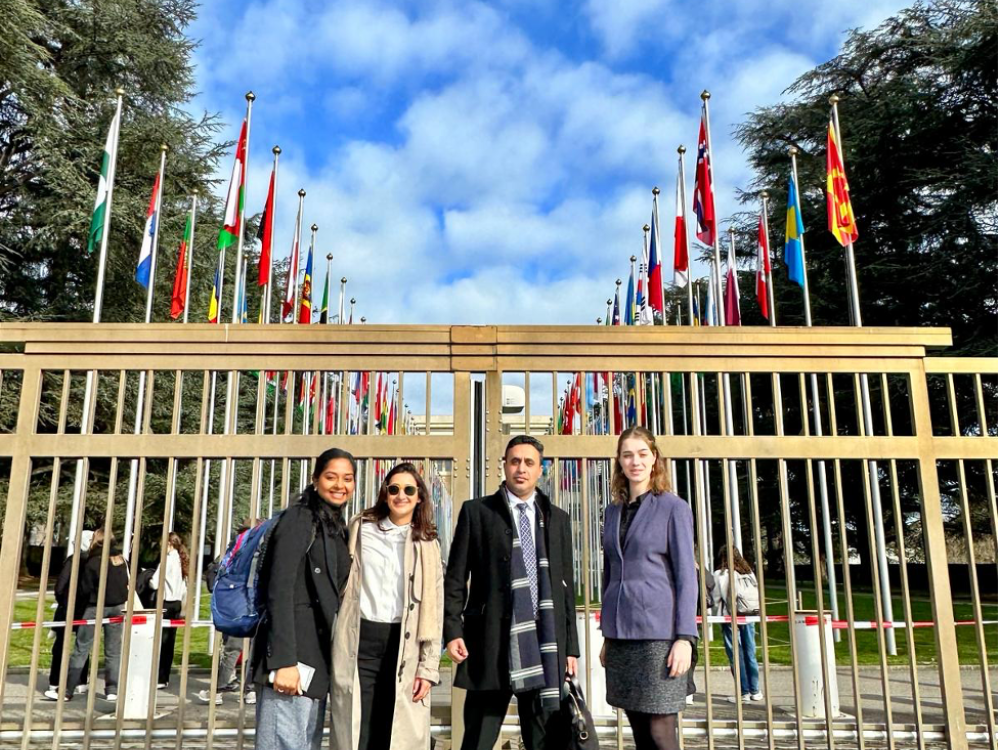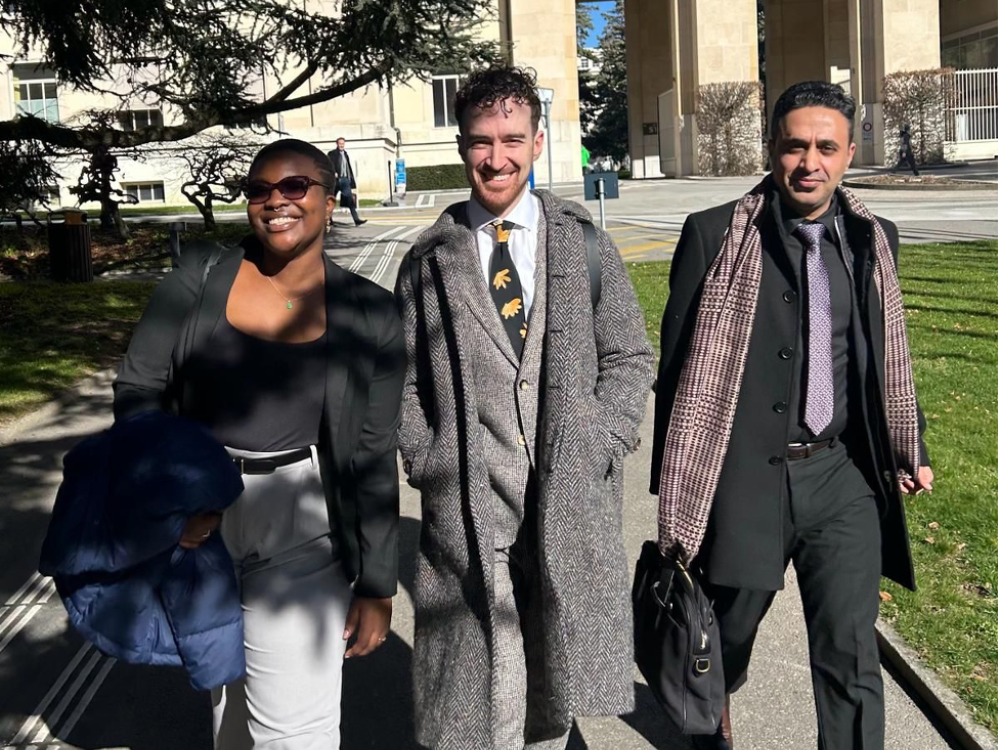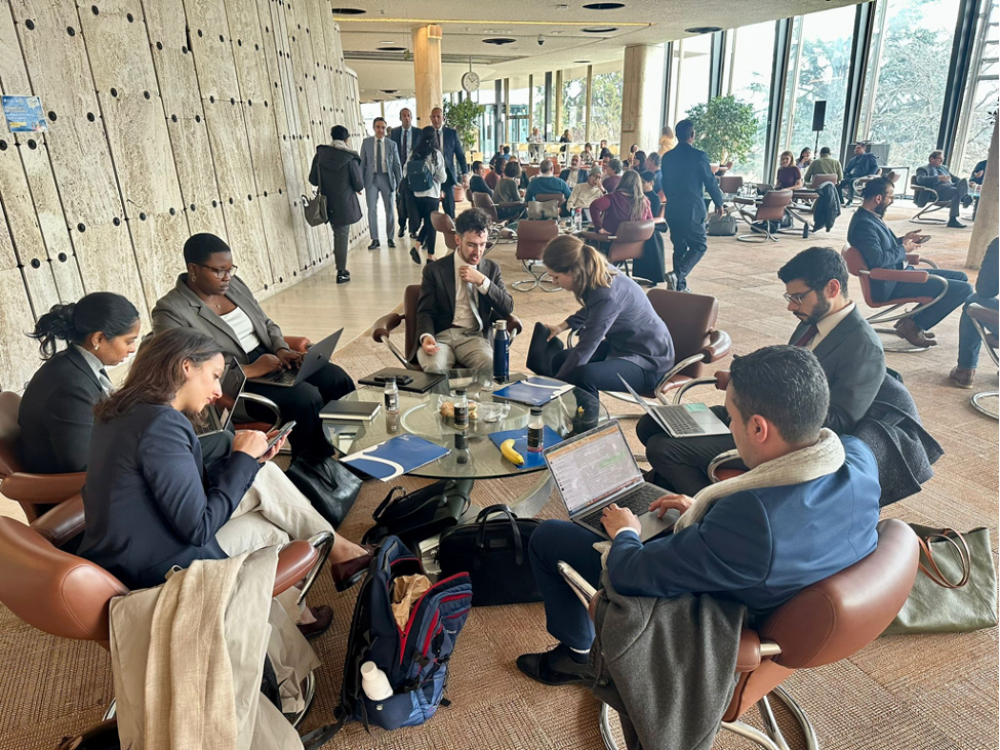
Columbia Law School Human Rights Clinic and Sana’a Center for Strategic Studies Advocate at UN for Climate Justice and Transitional Justice
March 11, 2024 | The Columbia Law School Human Rights Clinic and the Sana’a Center for Strategic Studies traveled to Geneva last month to advocate at the United Nations for climate justice and for a victim-centered transitional justice process in Yemen.
“Political elites are ignoring the needs and priorities of communities harmed by a decade of war in Yemen,” said Yasmeen al-Eryani, the Co-Executive Director for Knowledge Production at the Sana’a Center for Strategic studies, Yemen’s leading think tank. “Affected communities deserve peace and human rights, and transitional justice in Yemen must be designed in a victim-centered way.”

The team was in Geneva as part of the UN’s Universal Periodic Review (UPR), a human rights process in which every country in the world is examined. The country under review appears before the UPR, and answers questions about its compliance with human rights law. Governments on the UN Human Rights Council review a country’s human rights record, and make recommendations to improve human rights in the country under review.
“The UPR is a critical part of the international human rights system,” said Professor Sarah Knuckey, the Director of the Human Rights Clinic at Columbia Law School. “It holds governments to account for their human rights obligations. Civil society participation in the UPR ensures that the UN listens to locally-defined human rights priorities.”
The Clinic and Sana’a Center teams also shared with the UN and member states their innovative research on the nexus between armed conflict and environmental harms and climate change. Climate change is a threat multiplier, and there can be no sustainable peace without taking into account the environmental drivers and impacts of conflict.

“Elites say that preparing for climate change is a luxury,” said Yazeed Al Jeddawy, Research Coordinator at the Sana’a Center for Strategic Studies. “But people in Yemen, rural populations, farmers, fisher men and women, they are already experiencing the impacts and they need solutions now. The capital of Yemen, Sana’a, is likely to run out of water within the next ten years. Urgent action is needed.”
Alongside the advocacy goals of the work in Geneva, it was also an opportunity for students in the Clinic to hone their skills in creative and effective international advocacy. They learned how to build relationships with NGO partners, effectively frame human rights law arguments, conduct agenda-setting work, navigate complex international forums, and ensure that the needs of impacted communities voiced at global levels.
“In Geneva, we met with UN officials and diplomats from countries including Vanuatu, Sudan, and the Netherlands,” said Sam Sontag ’24, a student in the Clinic. “It was an amazing learning experience to work alongside the Sana’a Center. We saw how important it is to understand the geopolitics of human rights. Being able to tailor our advocacy for each country meeting made our work effective.”
The Clinic and the Sana’a Center have been research and advocacy partners for nearly a decade. They bring together their complementary expertise in Yemen and political analysis, and international human rights, to conduct innovative research and advocacy to improve human rights and peace in Yemen. Their current work focuses on climate and transitional justice. Prior work has examined the impacts of war on mental health.

***
The Smith Family Human Rights Clinic at Columbia Law School trains students to be leaders in human rights advocacy. Students work on social justice advocacy around the world, in partnership with civil society, communities, and those directly affected by abuse.
Join us on Facebook: Human Rights Institute / Follow us on Twitter: @CLSHumanRights.
